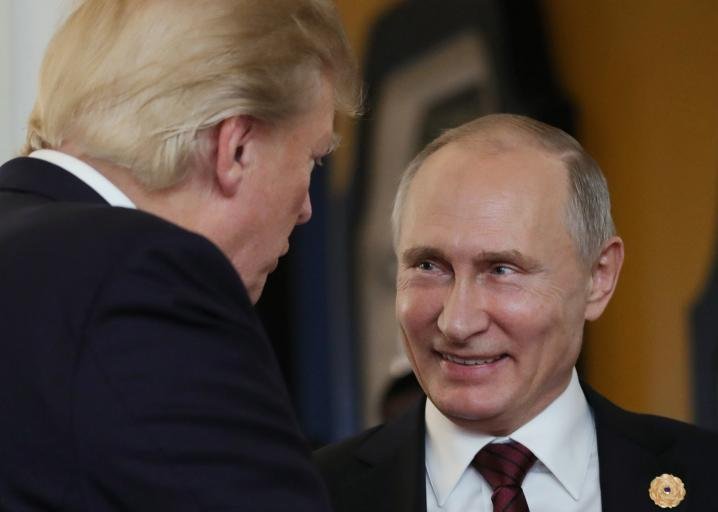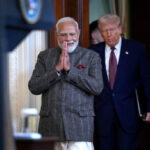Donald Trump’s presidency was marked by an unusual personal and political posture toward Vladimir Putin. While other U.S. leaders traditionally combined engagement with firm deterrence, Trump often leaned toward rhetorical praise, minimal confrontation, and skepticism toward traditional U.S. alliances.
2. Psychological Factors
2.1. Narcissistic Personality Traits
Trump’s self-image is deeply tied to public perception, personal loyalty, and a sense of being a master negotiator. Putin’s ability to project flattery, offer symbolic gestures of respect, and frame interactions as “leader-to-leader” deals appealed to Trump’s desire for personal validation over institutional consensus.
2.2. Transactional Worldview
Trump tends to approach politics as business deals, focusing on immediate gains rather than long-term strategy.Putin, by contrast, operates with a decades-long strategic horizon. This mismatch allowed Russia to give Trump symbolic “wins” (summit optics, verbal commitments) while gaining tangible concessions or space for geopolitical maneuvering.
2.3. Aversion to Conflict with Strongmen
Trump’s behavior toward other authoritarian leaders (Kim Jong Un, Xi Jinping, Erdoğan) indicates a pattern of avoiding direct confrontation with figures who project personal dominance. In psychological terms, this may stem from a desire to be seen as part of the “club” of decisive, uncompromising leaders, rather than as their adversary.
3. Ideological Influences
3.1. Skepticism Toward Multilateralism
Trump consistently criticized NATO, the EU, and other Western institutions. This aligned with Kremlin strategic aims to weaken U.S.-led alliances. While Trump’s skepticism stemmed from a belief that allies exploit U.S. resources, the effect was to undermine collective deterrence against Russia.
3.2. America-First Nationalism
Trump’s ideology focuses on bilateral deals and rejecting global obligations. This framework narrowed U.S. policy options against Russia, as sanctions, coordinated intelligence operations, and NATO force posture require multilateral cooperation that he often resisted.
3.3. Ideological Overlap with Right-Wing Populism
Putin’s regime promotes nationalist, anti-liberal, and socially conservative narratives — themes that resonate with Trump’s domestic political base. This ideological overlap created a subconscious incentive to avoid painting Putin as an adversary, since doing so could alienate a segment of Trump’s supporters who admire aspects of Putin’s governance.
4. The Kremlin’s Exploitation of These Traits
4.1. Information Manipulation
Russia amplified Trump’s image through state media, portraying him as a pragmatic outsider willing to challenge the U.S. “deep state.” This flattery reinforced his belief in his own unique capacity to manage U.S.–Russia relations.
4.2. Diplomatic Theater
High-profile meetings (Helsinki 2018) were staged in ways that minimized institutional U.S. influence and maximized leader-to-leader dynamics — exactly the setting where Trump’s vulnerabilities could be most effectively exploited.
4.3. Strategic Patience
The Kremlin understood that Trump’s focus on short-term optics meant he could be persuaded to downplay or deny long-term threats, such as election interference, in exchange for perceived personal rapport with Putin.
5. Consequences for U.S. Foreign Policy
- Weakened Deterrence: Public disputes with NATO and the EU signaled cracks in the Western alliance structure.
- Policy Paralysis: Intelligence warnings about Russian interference were often disregarded or publicly questioned, hampering countermeasures.
- Legitimizing Putin: Trump’s praise and reluctance to criticize Russia publicly elevated Putin’s standing both domestically and internationally.
6. Conclusion
Trump’s ineffectiveness with Putin was not merely a product of policy disagreements or lack of information; it was rooted in a combination of personal psychology and ideological inclination. The Kremlin recognized and systematically leveraged these traits, shaping a U.S.–Russia dynamic that weakened Washington’s strategic posture and emboldened Moscow.
In practice, the Kremlin does not genuinely respect U.S. authority in the sense of accepting Washington’s moral or political leadership.
Its approach is a mix of pragmatic recognition and strategic defiance:
- Recognition of Power, Not Leadership – Moscow fully acknowledges that the U.S. remains the most militarily and economically powerful state, capable of shaping global agendas. This recognition drives caution in direct confrontation but does not translate into deference.
- Ideological Rejection – The Kremlin rejects U.S. authority as the “arbiter” of world affairs, framing it as illegitimate and hypocritical in Russian propaganda. It portrays U.S. global leadership as a mask for neo-imperialism and regime change.
- Selective Cooperation – When U.S. power can be used to Russia’s advantage (e.g., arms control talks, counterterrorism coordination), the Kremlin engages — but often treats such engagement as transactional, not as following a superior.
- Active Undermining – In many arenas (Ukraine, Syria, Africa, disinformation campaigns), Russia acts specifically to weaken U.S. influence, which signals that it views “respect” in zero-sum, competitive terms.
1. Putin Sees Trump as Predictable and Manipulable
- The Kremlin believes Trump is easier to influence through personal flattery and symbolic concessions.
- Moscow may exploit this by prolonging conflict rather than resolving it, expecting Trump to make unilateral concessions without demanding real change from Russia.
2. No Incentive to End the War Quickly
- The war serves multiple strategic purposes for Moscow:
- Weakens Ukraine militarily and economically.
- Drains U.S. and NATO resources.
- Creates leverage for future negotiations.
- A “quick deal” with Trump would remove this leverage without guaranteeing sanctions relief or territorial gains.
3. Preference for Bilateral Bargaining, Not Genuine Peace
- Russia wants transactional talks with Trump focused on spheres of influence, not principled peace.
- Moscow is likely to use talks to secure de facto recognition of annexed territories, not to restore Ukraine’s sovereignty.
- 4. Kremlin Expects Trump to Pressure Kyiv, Not Moscow
- Past Trump behavior (e.g., 2019 Ukraine aid freeze) showed he could pressure Ukraine more than Russia.
- This fuels Moscow’s calculation that they can achieve political concessions by stalling and waiting for Washington to act against Kyiv’s interests.
5. Domestic Russian Propaganda Needs the “Enemy” Narrative
- Kremlin-controlled media relies on portraying the West — especially the U.S. — as hostile.
- Ending the war under Trump would undermine this narrative and potentially destabilize domestic support for Putin.
6. Ideological Gap on Sovereignty
- Trump views foreign policy in transactional terms (“deals”), while Putin’s Ukraine policy is driven by imperial ideology and a long-term vision of Russian dominance.
- This means even if Trump offers a “grand bargain,” it would likely not satisfy Putin’s deeper strategic goals.
7. Timing Advantage for Moscow
- By dragging out the war, the Kremlin hopes for:
- U.S. political polarization to deepen.
- European unity on Ukraine to erode.
- Possible U.S. disengagement under Trump without formal concessions from Russia.
In Russia, strategic decision-making on war, foreign policy, and U.S. relations is not done by Putin alone, but by a de facto “politburo” — a small circle of security, intelligence, and economic elites whose consensus shapes outcomes.
So, This collective leadership dynamic would affect relations with Trump:
1. The Politburo Prioritizes Institutional Interests Over Putin’s Personal Rapport
- Even if Putin personally values a good relationship with Trump, the broader elite calculates the systemic benefits of prolonging confrontation with the U.S.
- Security chiefs (Patrushev, Bortnikov, Shoigu) view the U.S. as a permanent rival; they oppose any deal that could be read as a concession.
- Economic and energy elites may seek tactical sanctions relief but still support using Trump as a tool rather than as a partner for genuine peace.
2. Consensus Culture Slows or Dilutes “Big Deals”
- Major foreign policy shifts require buy-in from this collective, not just Putin’s signature.
- If Trump offers an agreement that some members see as dangerous (e.g., recognizing Ukraine’s borders), they will stall, water it down, or frame it in ways that preserve Russia’s leverage.
3. The Security Bloc’s Dominance
- The siloviki (security and intelligence elite) dominate the politburo, and their worldview is rooted in the belief that the U.S. must be weakened, divided, and distracted.
- For them, Trump’s presidency is a strategic opportunity to undermine NATO and Western unity — not to resolve Ukraine.
4. The “Multiple Audience” Strategy
- Russian foreign policy messaging is tailored for multiple audiences:
- Domestic: Keep the “besieged fortress” narrative alive.
- Elite: Prove that Russia is holding its ground against the U.S.
- International: Present Moscow as open to talks — but only on its terms.
- Even if Putin and Trump smile for the cameras, the internal messaging will stress resistance, not cooperation.
5. The Collective’s Long-Term Game vs. Trump’s Short-Termism
- Trump thinks in terms of quick wins and deal optics.
- The Russian politburo thinks in decades: weakening U.S. alliances, eroding Ukraine’s viability, and reshaping the European security order.
- This mismatch means they will not “close” the Ukraine file with Trump — they will stretch it out to keep extracting geopolitical gains.
6. Internal Rivalries Encourage Caution
- Within the politburo, factions compete for influence. A premature deal with Trump could be used internally to accuse rivals of “selling out” national interests.
- Safer course: keep Trump engaged but deliver nothing irreversible.
Implication for U.S.–Russia Relations under Trump
Even if Trump personally believes he can “make a deal” with Putin, the Kremlin’s collective decision-making body will act as a brake — ensuring that any cooperation serves Russia’s strategic position and does not undermine the long-term anti-Western posture that unites the elite.
. Security & Intelligence Bloc – “The Siloviki Core”
These figures dominate strategic decisions on war, espionage, and relations with the U.S. They are the most hostile to concessions.
| Name | Position / Role | Faction | View on Trump | Likely Influence |
| Nikolai Patrushev | Secretary of Security Council | Hardline siloviki, KGB legacy | Distrusts U.S. entirely; sees Trump as exploitable but not trustworthy | Would push to keep confrontation alive, block territorial concessions |
| Alexander Bortnikov | FSB Director | Security services | Views Trump as a target for influence ops | Would emphasize intelligence leverage over any real reset |
| Sergey Shoigu | Minister of Defense | Military establishment | Pragmatic but nationalist; sees Trump as a chance to weaken NATO | Would support symbolic agreements but preserve military pressure on Ukraine |
| Sergey Naryshkin | SVR (Foreign Intelligence) Director | Intelligence & ideology | Thinks Trump can be manipulated on NATO & EU unity | Would prioritize covert influence over formal deals |
2. Economic & Energy Bloc – “The Resource Managers”
Focused on sanctions relief and long-term resource deals. More pragmatic but still nationalist.
| Name | Position / Role | Faction | View on Trump | Likely Influence |
| Igor Sechin | CEO, Rosneft | Siloviki–business hybrid | Likes Trump’s business instincts; sees oil deals as possible | Would push for partial sanctions relief in exchange for vague promises |
| Alexey Miller | CEO, Gazprom | Energy elite | Sees Trump as a means to undercut EU energy independence | Would tie deals to gas supply leverage |
| Elvira Nabiullina | Central Bank Governor | Technocrat | Pragmatic, cautious | Would prefer stability but has limited power in strategic matters |
3. Political Technologists & Ideologues
They shape narratives and manage domestic legitimacy.
| Name | Position / Role | Faction | View on Trump | Likely Influence |
| Sergey Kiriyenko | First Deputy Head, Presidential Administration | Political management | Views Trump as a propaganda tool | Would script domestic narrative to show Russia as “equal” to U.S. |
| Vladislav Surkov (semi-retired but still consulted) | Political strategist | Ideological influence | Likes Trump’s disruption of U.S. politics | Would advise keeping chaos in the West alive |
4. Putin’s Personal Gatekeepers
They manage access and protect Putin’s autonomy but can also filter Trump’s influence.
| Name | Position / Role | Faction | View on Trump | Likely Influence |
| Dmitry Medvedev | Deputy Chairman, Security Council | Loyalist | Publicly aggressive toward U.S., privately opportunistic | Would act as attack dog to distract from actual policy shifts |
| Anton Vaino | Kremlin Chief of Staff | Administrative | Neutral on Trump personally | Controls the flow of information to Putin — key in slowing decisions |
How They Would React to Trump’s Key Proposals
| Trump Proposal | Security Bloc Reaction | Economic Bloc Reaction | Ideologue Reaction |
| Recognizing Crimea as Russian | Strongly support, frame as victory | Support, push for more concessions | Use as propaganda triumph |
| Ukraine ceasefire / territorial freeze | Support only if Russia keeps gains | Support for economic stability | Sell as “peace through strength” |
| Lifting sanctions on elites | Top priority | Strong push | Show domestically as U.S. defeat |
| Cutting U.S. support to NATO | Encourage covertly | Use to expand EU energy dependence | Present as collapse of Western unity |
Strategic Implication
Trump will not be dealing with “Putin alone” — he will be facing a coordinated elite machine that:
- Exploits his transactional style for maximum gains.
- Prevents any real reversal of Russia’s anti-U.S. posture.
Stretches negotiations to keep extracting benefits without making core concessions.
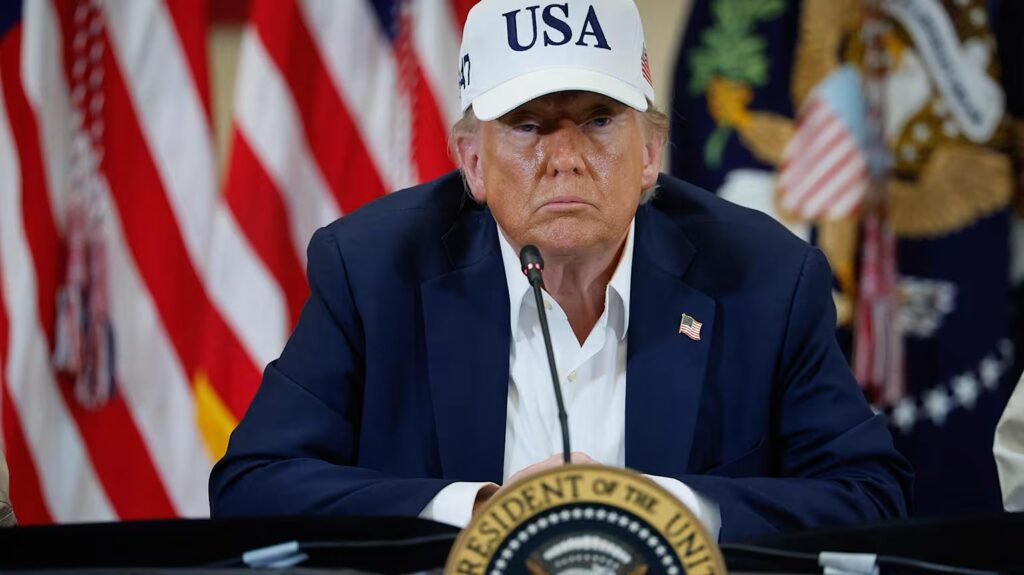
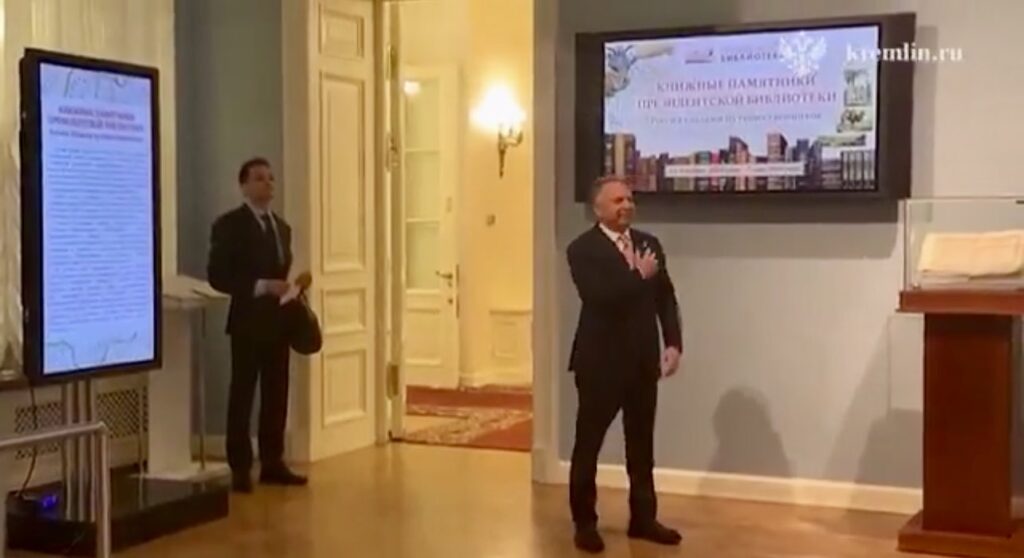
More on this story: Analysis: Outcomes of the Witkoff Visit to Moscow
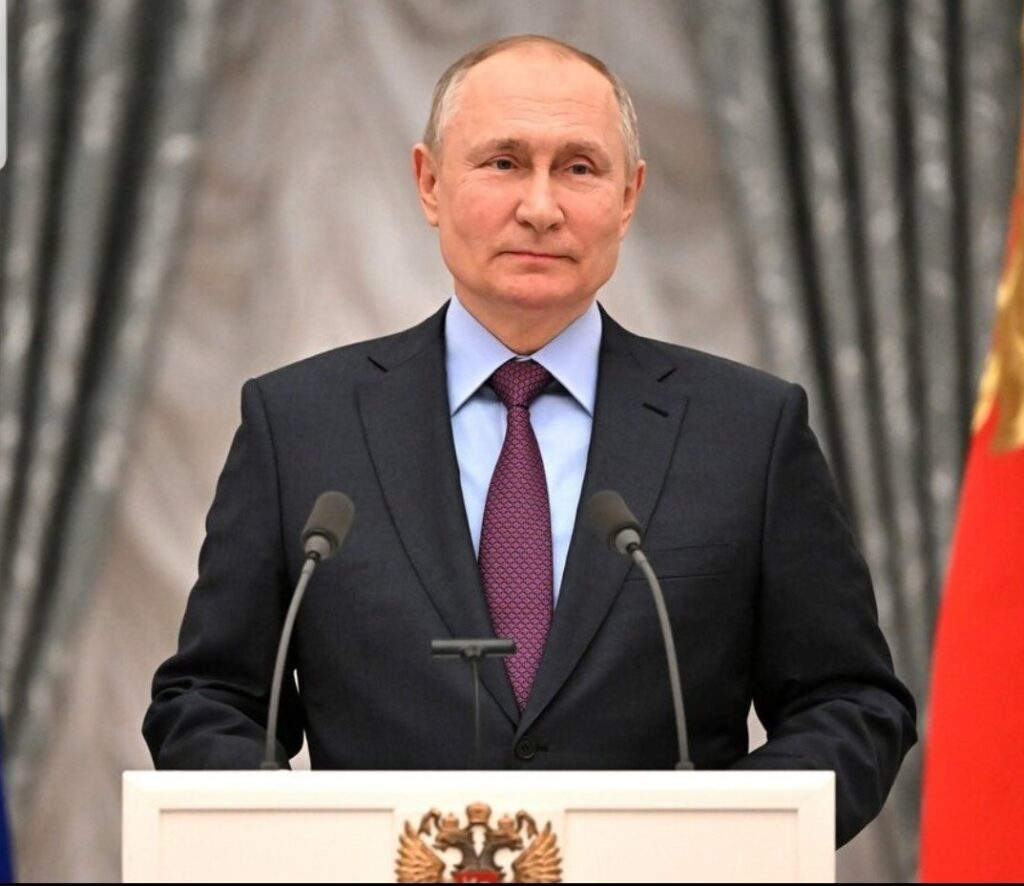
More on this story: Why Russia Is Not Contractually Capable


